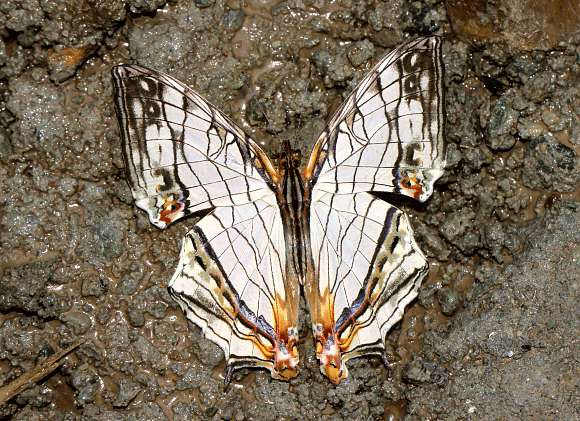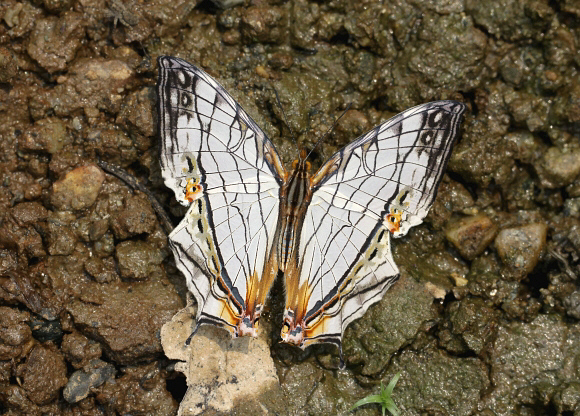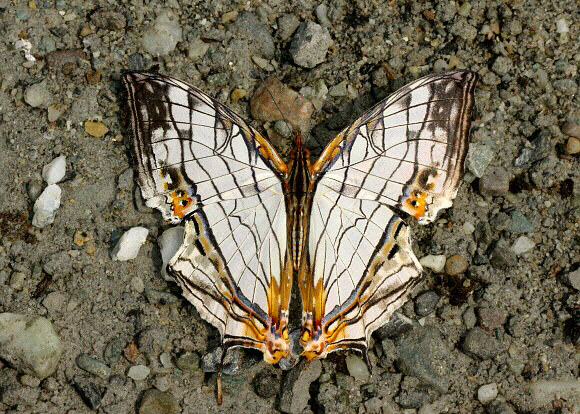
Introduction
The Cyrestis Mapwings and their small orange-winged relatives the Chersonesia Maplets are noted for their attractive patterns of fine lines and their short-tailed hindwings. They are closely related to the Marpesia Daggerwings of the neotropical region. Taxonomists differ regarding the higher level taxonomy of these butterflies. Some workers allocate them to the tribe Cyrestini which they include within the subfamily Biblidinae. Others place them in their own subfamily Cyrestinae.
There are 25 Cyrestis species in total. Only two occur on the Indian subcontinent – thyodamas and cocles. The remainder are distributed variously across s.e. Asia from Myanmar and the Andaman islands to Indonesia, Papua New Guinea, and the Solomon islands; although there is a single species camilla, found in Africa and Madagascar.
Cyrestis thyodamas occurs in India, Myanmar, Thailand, China, and Taiwan.
Habitats
This is a common and widespread butterfly in India, and is found in primary and secondary forest at elevations between about 100-900m.
Lifecycle
The larvae feed on the leaves of fig trees Ficus ( Moraceae ).

Adult behaviour
The Common Mapwing is usually encountered singly or in two’s and three’s, in open forest edge habitats. Males are often seen on gravel roads or along pebble-strewn river beaches, where they bask in full sunlight while imbibing mineralised moisture. They are initially nervous and difficult to approach but once they start imbibing they tend to remain at the same spot for several minutes.
Females are seen less often, but sometimes encountered along forest trails, or nectaring at flowers in forest gardens. Both sexes habitually rest beneath leaves with their wings outspread. Less commonly they will bask on the upper surface of large leaves, but tend to only do so in areas of dappled sunlight.

